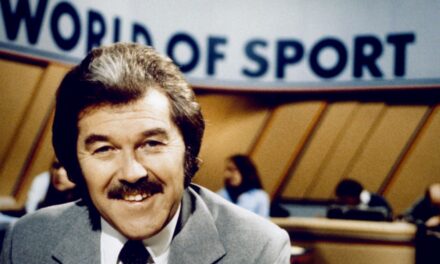Laurence Olivier, born on May 22, 1907, in Dorking, Surrey, England, was a renowned British actor, producer, and director who has been considered one of the greatest actors of the 20th century. He had a successful and prolific career that spanned over six decades, earning him widespread critical acclaim and numerous awards.
Olivier was born into a middle-class family, the youngest of three children. He developed an early interest in acting and performed in local amateur productions. Olivier attended a boarding school, but he struggled academically and eventually dropped out. Despite this setback, his passion for acting led him to enroll at the Central School of Speech and Drama in London.
In 1927, Olivier made his professional debut on stage, and his remarkable talent quickly gained recognition. He became a prominent member of the British theatrical community, performing with esteemed companies like the Old Vic and the Royal Shakespeare Company. Olivier’s stage career was marked by groundbreaking interpretations of classic plays, including Shakespearean works such as “Hamlet,” “Othello,” and “Henry V.”
In addition to his stellar stage career, Olivier excelled in film as both an actor and director. He made his film debut in 1930 and went on to deliver memorable performances in iconic roles such as Heathcliff in “Wuthering Heights” (1939), Maxim de Winter in “Rebecca” (1940), and the title character in “Henry V” (1944). Olivier’s work on both sides of the camera earned him 12 Academy Award nominations, with his standout win coming for his role in “Hamlet” (1948). He became the first person to direct himself to an Oscar win.
Alongside his successful film career, Olivier also made notable contributions to television. In the late 1950s, he formed his own production company, and as its head, he starred in and directed several television adaptations of classic plays and novels, including John Osborne’s “The Entertainer” (1960) and Graham Greene’s “The Moon and Sixpence” (1960).
Throughout his career, Olivier’s talents were recognized with numerous awards and honors. In addition to his Academy Award for “Hamlet,” he received honorary awards for his outstanding contributions to the field of acting and film, including the Academy Honorary Award in 1947 and the BAFTA Academy Fellowship in 1979. He was knighted in 1947 and later elevated to the peerage, becoming the first actor to be granted a life peerage and taking the title of Baron Olivier of Brighton in 1970.
Beyond his portrayals on stage and screen, Olivier had a profound impact on the acting profession. His approach to acting, characterized by impeccable diction, expressive physicality, and nuanced performances, set new standards for excellence. Olivier believed in the importance of studying the text and understanding the character’s psychology, and his dedication to his craft inspired countless actors who followed in his footsteps.
Laurence Olivier’s influence on contemporary culture cannot be overstated. His contributions to film, theater, and television remain timeless, and his work continues to inspire actors and artists across the globe. Olivier passed away on July 11, 1989, leaving behind a remarkable legacy of talent, artistry, and passion. As he once said, “The actor should be able to create the universe in the palm of his hand.” Olivier’s ability to do just that solidified his place as a true master of his craft.













